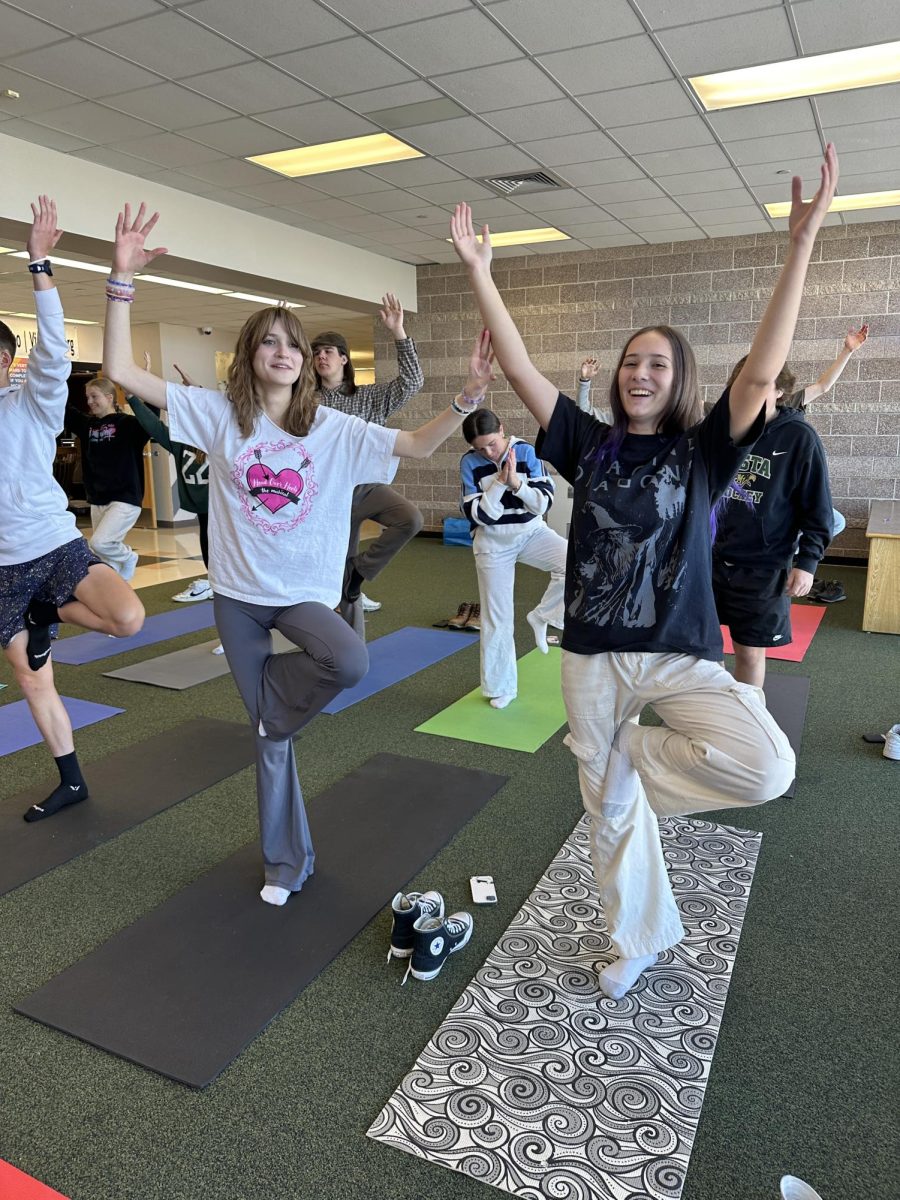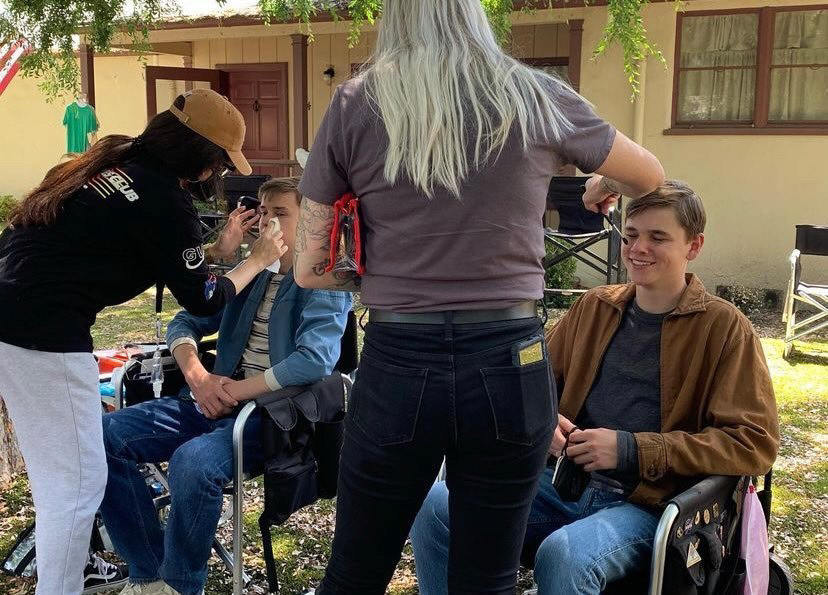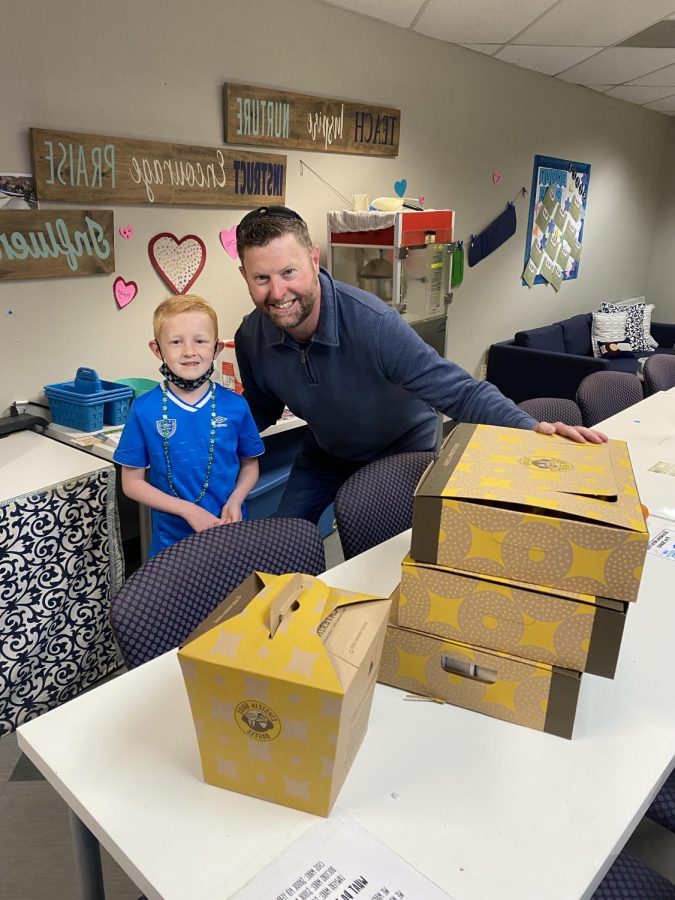This post was updated on Sept. 7, 2018
As people, we constantly strive towards fulfillment. We seek to quench the insatiable thirst driven by our own desires. Success is synonymous with the people we perceive to have quenched this thirst. However, that begs the question: Is success only an externally perceived achievement? Is it something we, ourselves, are capable of feeling we have reached?
Staci Stech has been a teacher for 17 years. Her life traveled a path that could not be foreseen from the start. Stech said she knew she “wanted to be a teacher since [she] was old enough to understand what a teacher was,” which ,for her, was “four years old.” She had a teacher that at a very young age impacted her greatly. She believes that “in part it was trying to be like that [teacher].”
This makes sense, as her teacher played piano, and Stech herself did as well. Stech even was accepted to the University of Denver to study piano, but her parents would not pay for it, so she opted for a double major in anthropology and English, however, she only finished the English major.
However, after acquiring her degree, she “made copies for a long time, about five years,” at Kinkos, then she “worked for an insulation company, which was emotionally awful, but it was a job.” When she graduated, there were “not a lot of jobs,” she said, so she “was just working to live.”
It was only one day, while driving her car did she realize she forgot she wanted to be a teacher, so she went back to school, got a teaching certificate, and now, 17 years later, she finally feels like she is successful because she “looks forward to coming to work,” and ”helps students become who they want to be.”
All that time she was not doing what she loved, she believes she was not successful. Only in the sense that she “got married, had friends, could afford a place to live,” she said she was successful, but there was a bigger component missing. She was “not happy with the direction her life was going.”
However, her feelings of her own success did not immediately change to reflect that of her decision to chase her dream. Even though she was “doing what she wanted to do,” for “a long time starting out as a teacher, you feel unsuccessful.” Being a teacher, you experiment on kids. It is hard to see the impact you make, and you cannot really practice it before you start teaching. It is only recently now that she believes she is successful.
However, her success is not a one time achievement. It is a process of self improvement. She comes to work always trying to do better than the previous day. Her success is bi-conditional. Now that she has secured the ability to live, afford a house, and steadily maintains relationships, she can focus on satisfying her career.
It is almost as if success is a hierarchy. Sometimes you must focus on base survival before you can focus on your own mental well-being. But in order to feel truly successful, you must maintain and upkeep both.
But that being said, most teenagers still do not feel successful. Whether this is because we are too young to have our own independent careers and lives to grow, or we simply are not successful, is hard to answer. All that we truly can determine is how we feel about ourselves.
Senior Morgan Castor says “success is being comfortable with yourself and what you are doing in life.” She acknowledges that it is a common misconception at our age that success is being rich and well-known, however, it is not. As a teenager, success is not always moving towards an arbitrary goal. It is not a constant strife in order to become something, but rather an effort to be happy with what you are doing.
“To some success is working with monkeys like Jane Goodall,” Castor said, “It is just about self fulfillment.” However, upon self-introspection into her own life, she revealed “she is absolutely not [successful].” She declares herself a procrastinator that is “always behind on things and works a minimum wage job.”
It seems too easy to call ourselves unsuccessful. When looking at our own lives, it is easy to just see all the things we lack, rather than our passions. Success takes growth. It is a constant movement towards self betterment. However, that being so, it may feel as if we are never there.
But, we are. We all have passions. Whether it is teaching and building relationships like Stech, or learning about animals and film/cinematography like Castor, we all have our passions.
We all strive towards self-fulfillment. We all desire to look back with pride and joy on our lives. But it is in our nature to see other people as successful and not ourselves. “If I was looking at another person in my position, I would probably see them as successful,” Castor said.
But why? Do we all not have passion for our lives similar to that of people we deem successful? Do we not all do things we enjoy to make ourselves happy? Do we not all have one thing, just one thing that we love doing?
Self-fulfillment. That is what the majority of teenagers believe success is. So if we are all in the process of fulfilling ourselves; if we are all chasing our passions and dreams in spite of our age, why do we say we are unsuccessful?
Teenagers need a perspective change. Yes, we are not completely there yet, but success is not one singular achievement. It is a process, a process of constant upkeep.
No longer should we say we are unsuccessful because we cannot see a clear future for ourselves. It is time for a change in vision from next to now. Right now we are successful. Right now we are working towards our lives. Right now we have relationships, homes, families, and people we love on top of the things we love. The simple act of maintaining those, growing them, and chasing them is success.
*An earlier version of this story was amended to reflect Stech’s correct major.







































